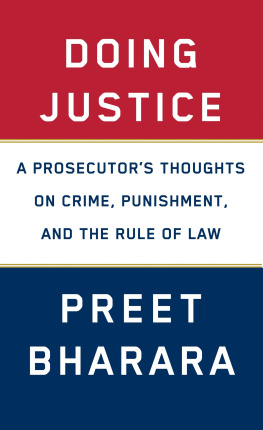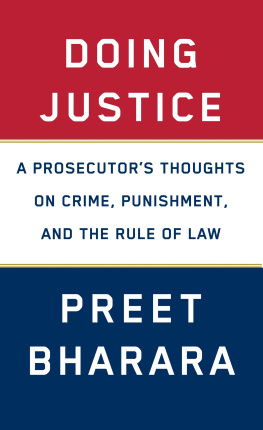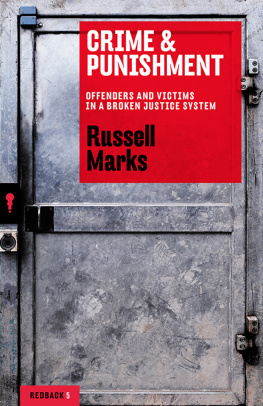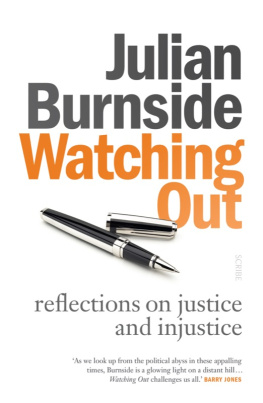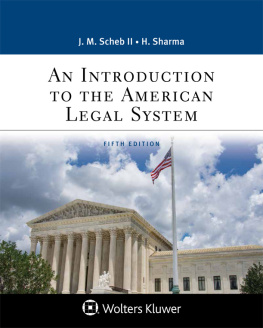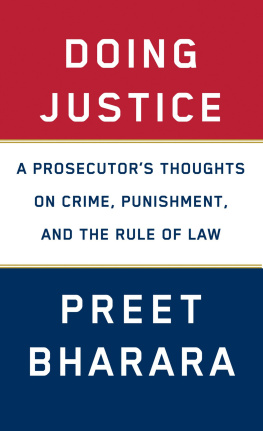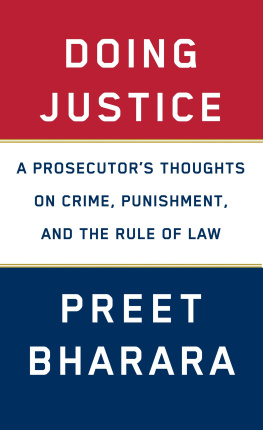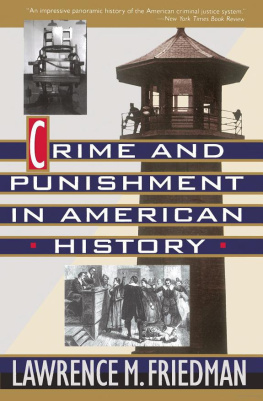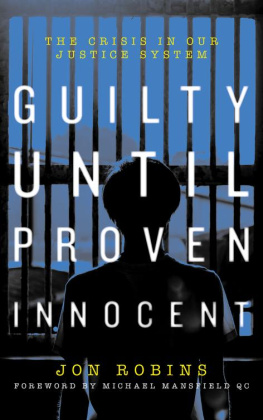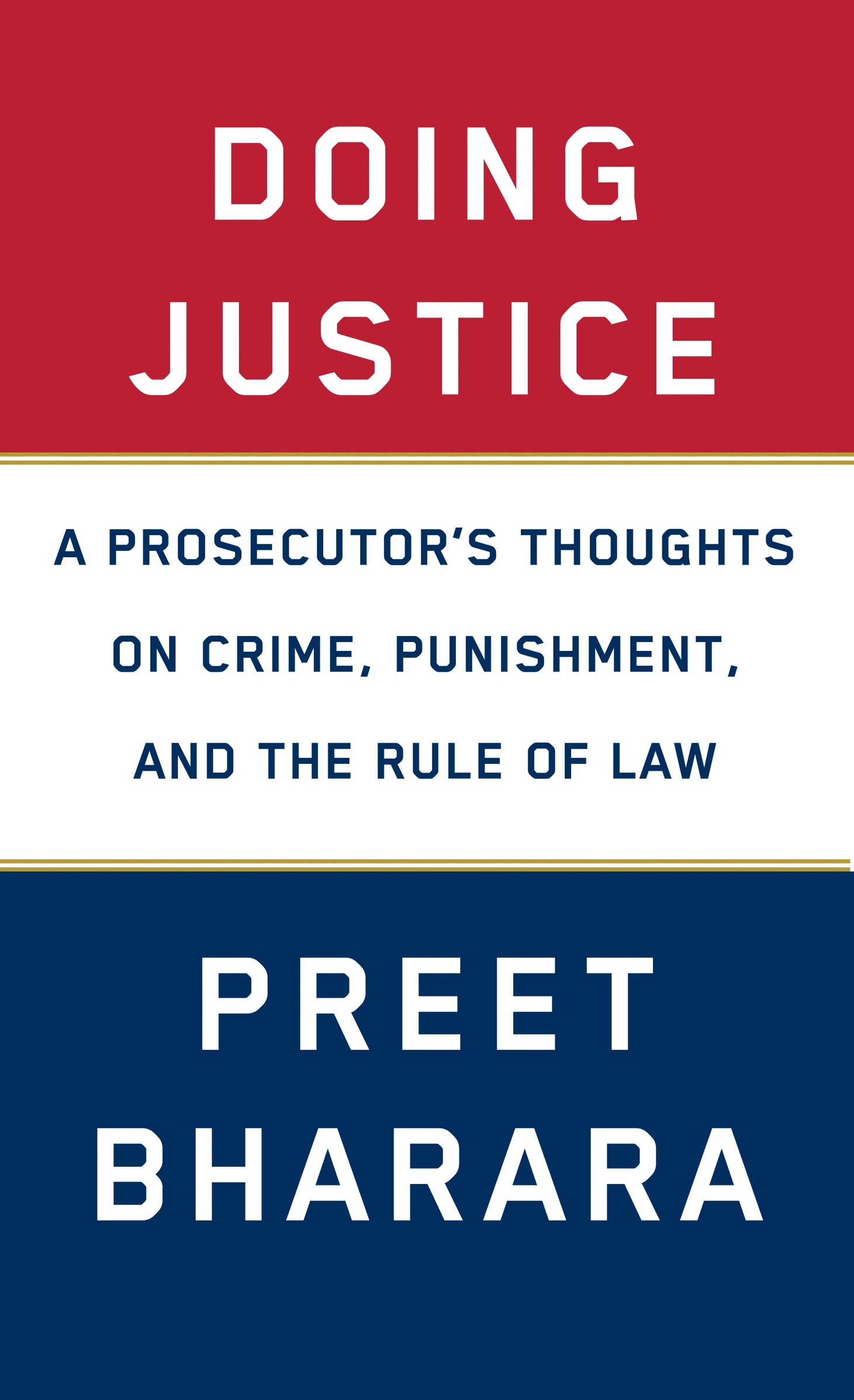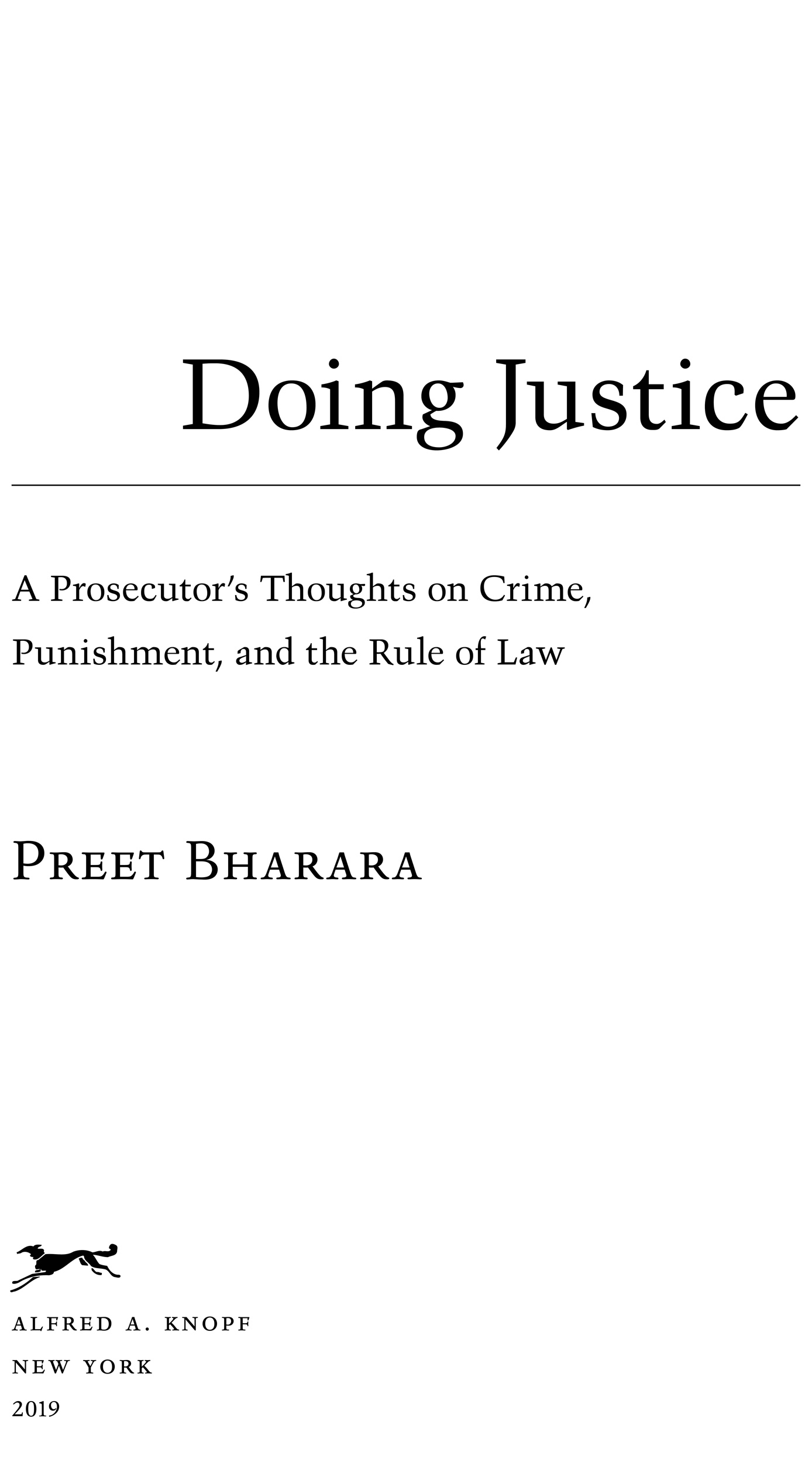THIS IS A BORZOI BOOK PUBLISHED BY ALFRED A . KNOPF
All rights reserved. Published in the United States by Alfred A. Knopf, a division of Penguin Random House LLC, New York, and distributed in Canada by Random House of Canada, a division of Penguin Random House Canada Limited, Toronto.
Knopf, Borzoi Books, and the colophon are registered trademarks of Penguin Random House LLC.
Names: Bharara, Preet, author.
Title: Doing justice / Preet Bharara.
Description: New York : Alfred A. Knopf, 2019.
Identifiers: LCCN 2018053931 (print) | LCCN 2018055346 (ebook) | ISBN 9780525521136 (ebook) | ISBN 9780525521129 (hardcover)
Subjects: LCSH : Justice, Administration ofUnited States. | Justice, Administration ofMoral and ethical aspects. | Justice. | Rule of lawUnited States.
Classification: LCC KF 8700 (ebook) | LCC KF 8700. B 43 2019 (print) | DDC 347.73dc23
LC record available at https://protect-us.mimecast.com/s/SRzkCBBnp1spYEOxf6uIoQ?domain=urldefense.proofpoint.com
For my family and for the fearless women and men of the U.S. Attorneys Office for the Southern District of New York, the best place I will ever work
Preface
This book was written, over the course of more than a year, in the midst of an involuntary career change. I held the position of U.S. Attorney for the Southern District of New York (SDNY) for seven and a half years, extended beyond the usual term at the personal request of President-elect Donald J. Trump on November 30, 2016, soon after his election. Then, on March 11, 2017, I was abruptly fired by President Trump.
Before I left that office, the crises were many and since then they have been and continue to be frequent, even constant. The rule of law and faith in the rule of law, the state of judicial and prosecutorial independence, the meaning and primacy of truthall are in question and under fire in numerous ways.
Phrases and concepts like the rule of law and due process and presumed innocent seem to do service these days more as political slogans than as bedrock principles. Other honored precepts appear to be slipping too. It seems preferred these days to demonize ones opponents rather than engage them, to bludgeon critics rather than win them over. There is a creeping contempt for truth and expertise. Rigor is wanting everywhere. We swim in lies, never corrected. And the concept of justice seems turned on its headholding different meaning depending on whether you are a political adversary or ally.
Certain norms do matter. Our adversaries are not our enemies; the law is not a political weapon; objective truths do exist; fair process is essential in civilized society.
It turns out that the law has something to teach us about truth, dignity, and justice. About how to resolve disagreements and disputeswith reason and evidence rather than taunts and character assassination. Much of what passes for argument in the public square these days would be laughed out of court. Politicians and television talking heads would be disbarred for perversions of truth and outright lies. As someone recently put it, federal court is not Twitter.
Many people find this moment in America alarming. There is rightfully a sense of urgency. But amid all that urgency, it is also vital to take a deep breath, to take a step back, to try to understand how justice is supposed to be accomplished. Then study the contrast between the bombast and anger versus the calm thought process. The education is in that contrast.
Early in my tenure as U.S. Attorney, I had this idea of creating a kind of guide for young prosecutors, new and idealistic. People who, in the words of one of my predecessors, Henry Stimson, have hope and virtue but neither experience nor training. A guide that was not really about the law as such but about how to find the right way to do the right thing, drawing not from legal texts and treatises but from the real-life human dilemmas that would perplex them every day. And in developing its themes, I realized that it might in fact be a guide to justice generally, not only for practitioners, but for real people who strive and struggle in their homes and offices to be fair and just. I didnt write the book then, for various reasons, but the concept remained in my head and in my heart.
Its my hope that years in the trenches overseeing the finest group of public servants I have ever met lend me some perspective to help people make sense of what has been happening in America.
In putting down these thoughts and stories, I went back to cases and controversies that predate todays legal battles. More important, I went back to basics. What does it mean to be fair and fair-minded? What does independence require, how is truth discovered, how is justice served? What is discretion and how to exercise it wisely? Not in the abstract, but in the messy and meddlesome real world, where we rely on flawed humans to carry out those ideals on the ground.
So this book is about those things, and because it is, it is also very much about the present. Sometimes the best way to address current events is to recall first principles.
For as long as I can remember, I have wanted to advance justice and its understanding. I have been devoted to the mission, cause, and philosophy of it my whole lifepersonally, academically, and professionally. What it is, what it means, how to accomplish it. How it thrives, how it dies.
When I was in high school in New Jersey, I entered public speaking contests. One competitive category required giving a speech previously delivered by someone else. (It was, I suppose, the super-nerd version of covering a song.) I was fifteen when I came across the defense summation delivered in the People v. Henry Sweet trial. The facts were these: Dr. Ossian Sweet had moved his family into a new house in a neighborhood in Detroit. Dr. Sweet was a black man, and his white neighbors didnt want a black family in their midst. It was 1925.
On their second night in the house, an angry mob descended and terrorized the Sweet family. They yelled and threw rocks. In the ensuing chaos, while defending the home, Dr. Sweets younger brother, Henry, fired a gun into the crowd. A white man was killed.
Henry Sweet found himself on trial not only for his freedom but also for his life. The state was seeking to execute him. Luckily for Henry, his lawyer was Clarence Darrow. In the case of the People v. Henry Sweet, Darrow delivered one of the most beautiful summations ever spoken. He talked of course about the facts of the case and argued the law of self-defense. But he also talked about justice generally and spoke eloquently about the plight of black people, only recently officially liberated from slavery.
He said of the African American, The law has made him equal, but man has not. And, after all, the last analysis is, what has man done? And not what has the law done. Ninety years later, that question remains relevant.
Darrow also said this:
After all, every human beings life in this world is inevitably mixed with every other life and, no matter what laws we pass, no matter what precautions we take, unless the people we meet are kindly and decent and human and liberty-loving, then there is no liberty. Freedom comes from human beings, rather than from laws and institutions.

